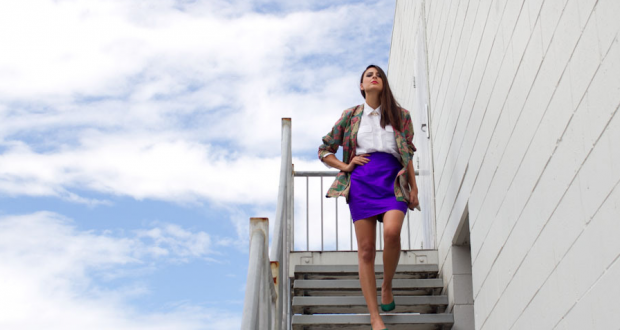Years ago you wouldn’t be caught dead in hand-me-down clothes, but today upcycling an old garment is considered both ethically conscious and fashionable. So why isn’t it mainstream? Ashley Thompson explores.
Emerging in the early 1900s, “charity shops” or “bazaars” were first set up to give labour opportunities to the disadvantaged and simultaneously fundraise for charities. It wasn’t until the deprivation of the Second World War that they became more widespread and popular among the “thrifty”.
Today, millennial hipsters view it as savvy to assemble an outfit for under $10 or rediscover skills like sewing in an effort to “upcycle” pre-loved clothing and exercise their creative juices.
“Upcycling is taking something that might not be able to be used as it was originally and turning it into something usable, amazing and sometimes just a little bit different,” explains Lifeline Regional Retail Coordinator for the greater Sunshine Coast, Melissa Keary.
Melissa believes this rise in popularity is due to the quality of the clothes donated which contrast with the cheap, mass-produced materials used by retail giants.
“I also think that people, especially the young, want to dress differently. They don’t want to be looking the same; they want something that is funky, with clashing patterns and they know they can get amazing quality for less,” says Melissa.
Competing against a department store’s advertising budget, location, convenience and range makes it difficult for op shops to be at the top of a shopper’s destination, as their altruistic nature is often mute among the inner-city latte set’s scavenge for vintage wear.
“We do try to explain to people now and when they purchase something they are helping to save a life,” says Melissa, “But it has its ups and downs … there are a lot of copies of styles out there in the retail world.”
Other roadblocks to upcycling’s infiltration of mainstream culture include the “dirty and sometimes smelly” condition of ill-managed op shops or the idea of being looked down upon for buying items second-hand. However, Melissa says many shops are addressing this perception and that many are now even mistaken for boutiques.
“To me it’s environmentally friendly and you are helping people at the same time, so it is something you should be proud of doing, shopping at an op shop.”
Operated by UnitingCare Community in Queensland, proceeds from Lifeline op shops go towards their crisis line 13 11 14.
 JourneyOnline
JourneyOnline







